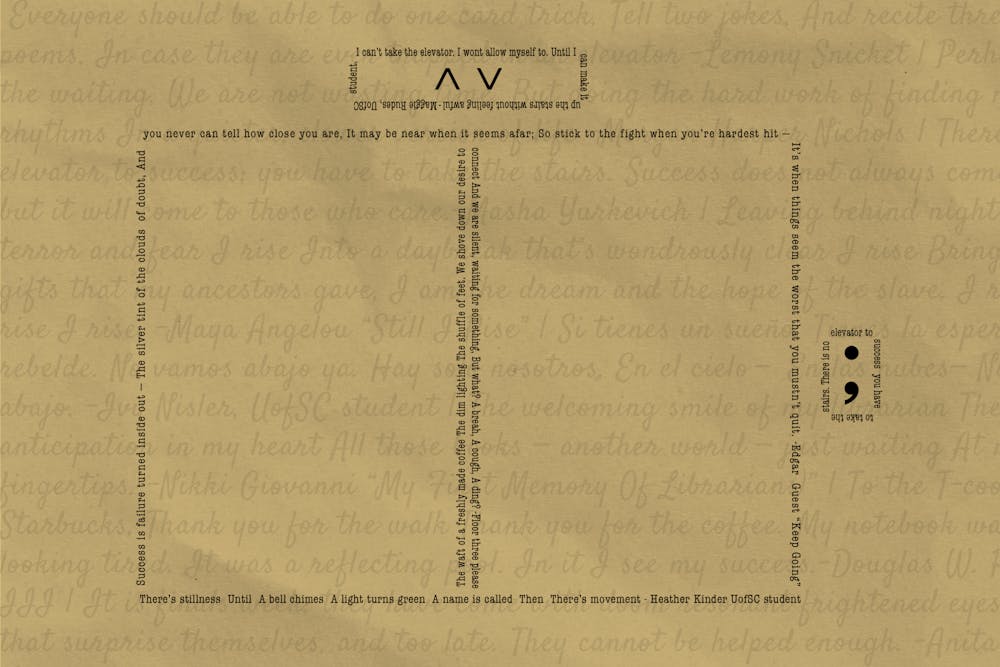In the final weeks of the fall 2021 semester, students in an English 200 class taped poems up in elevators, wrote haikus in paper napkin rings and chalked walkways with verses of poetry for their '200 Poets' class project. Their goal was to use literature to disrupt the monotony of daily life.
Ed Madden, a professor of English at USC, taught the class titled "Creative Writing, Voice, and Community," about combining literary arts with community engagement.
Madden is also the Poet Laureate of Columbia. Appointed by the mayor, the Poet Laureate's job is to uplift poetry around the city and to speak with libraries and schools about literature and penning poems about notable events in Columbia, he said.
Madden said he wanted to further promote poetry as public art and a form of literature that is meant to be shared and displayed in a community through his teachings in the course.
“The idea is to use literary arts in places where you're not expecting them. When you use them in a way that you're creating a moment of reflection, you're interrupting a space to create a human connection,” Madden said.
The goal of the project was to interject literature into daily life and inspire moments of reflection.
Cynthia Mast, a third-year environmental science student and a former student in the course, said completing the project reminded her of the shared day-to-day experiences everyone has.
“Even in reading other people's work that may have completely different backgrounds or completely different life situations than me, there are so many mundane shared experiences in every day,” Mast said. “Honestly, I think this project was the greatest thing in reminding me of that, little tiny things that we experienced similarly. And how writing can be used to bring us together through that.”
The project called for the students to be thoughtful about where to put poems around the community and to use the idea of disrupting routines to guide their choices. The students also had to get prior permission to display poems in a variety of locations, including local restaurants, animal shelters and elementary schools. They even wrote short poems and haikus on the disposable napkin rings in 929 Kitchen & Bar, a local Korean restaurant on Gervais Street.
The inspiration for the topics of the poems themselves was selected based on where they were going to be placed. Poetry verses posted in elevators spoke about the sensation of rising up through physical and metaphorical senses, while uplifting rhymes were scrawled on the ground near the well-trafficked bridge to Gambrell during finals week to cheer up stressed students.
Though most of these poems put up around campus could only be placed for a short time, the hashtag #200poets allowed photos of some posted poems to be archived on social media.
Over the last two years, the COVID-19 pandemic has challenged Madden’s English 200 groups in engaging safely with the community aspect of the project. This semester, Madden said he was impressed with his students' creativity.
“I just thought that was inspired, to put little tiny poems that when you open your napkin ring in the restaurant, there's a poem on the inside," Madden said. "And some of them were very funny and some were just about eating or going on a date or whatever. And I just love it when the students come up with really clever jokes like that.”
Ivy Nisler, a former member of Madden’s 200 English class and second-year public health student, said her group received positive responses from the local community about the poems they displayed in elevators around campus.
“We got a lot of feedback from professors like in Humanities buildings who really liked them,” Nisler said. “Just hearing that was so rewarding, just to know that people were actually reading them, you know, we weren't just going into elevators after school when no one's there, and it was actually being received by the community.”

